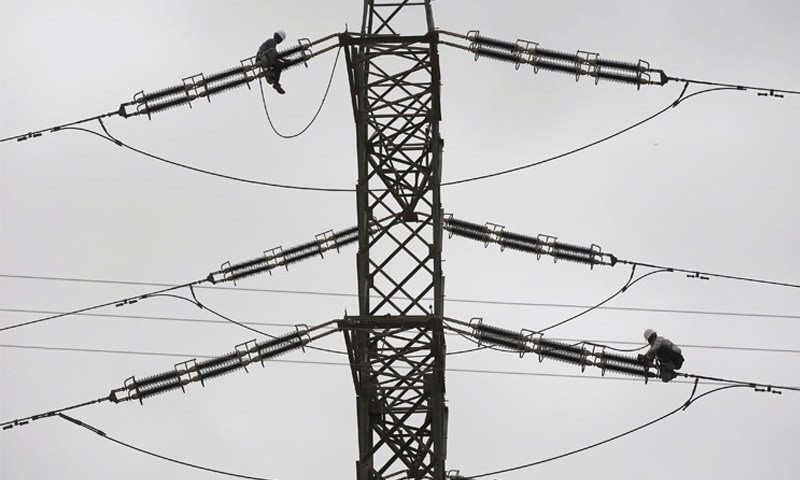
Irshad Ansari
ISLAMABAD
Privatisation Minister Fawad Hassan Fawad reiterated on Wednesday the government's commitment to privatise all loss-making State-Owned Enterprises (SOEs) to enhance their capability and efficiency, and to reduce financial burden on the national coffers.
Addressing a news conference along with Information Minister Murtaza Solangi after the meeting of the federal cabinet, Fawad said that current economic conditions did not allow the government to bear further losses incurred by these SOEs.
“The other objective of the privatisation of such enterprises is to attract potential foreign investment for the development of these enterprises,” he told journalists. These loss-making SOEs are not only wasting the financial resources but also increasing burden on the common man and the inflation,” he added.
Earlier, the cabinet was briefed about the privatisation of the loss-making SOEs, including the Pakistan International Airlines (PIA).
Fawad said that the accumulated losses of the national-flag carrier were recorded at Rs713 billion, including Rs263 billion in debt.
Besides, the minister said, an additional amount of Rs13 billion was provided by the banks on government guarantee. “The government also provided Rs150 billion from its own resources to the airline,” he added.
He said that the PIA was incurring Rs500 million loss per day.
The minister said that the objective of the PIA privatisation was to regain the maximum value and avoid unbearable losses to the national exchequer, which stood at Rs12.70 billion per month. The other objective of the divestment was to attract foreign investment in the aviation industry.
Currently, the minister continued, the PIA fleet consisted of 34 aircraft, out of which 15 were grounded and 19 were operational. He added that Pakistani pilots, engineers and supporting staff are highly skilled. “The government is committed to protecting employee rights and benefits.”
Responding to a question, the minister stressed that the caretaker government was working on the privatisation process which had been initiated by the previous governments. “No new entity is added to the privatisation list,” he said.
“The previous experiments of privatisation has witnessed remarkable success in sectors like telecommunication, finance and banking, and cement. The revenue collection has also increased manifold from these sectors.”
Meanwhile, Fawad briefed World Bank’s South Asia Practice Manager for Energy Simon Stolp about the government’s privatisation agenda and the legal mandate of the caretaker government, the privatisation ministry said in a statement.
The primary focus of the meeting was to discuss the government’s agenda for privatisation, with a specific emphasis on the performance of the distribution companies (DISCOs) in Pakistan’s power sector, the statement said.
The federal minister explained that the government’s privatisation agenda aimed at assisting struggling DISCOs and reducing the government’s financial burden through private sector investments. In this regard he stressed the need for a two-step strategy for the privatisation of DISCOs.
“The strategy potentially involves a concessional model of management control with a subsequent divestment strategy,” the statement said, adding that the discussions with the International Finance Corporation (IFC) regarding a concession model for DISCOs were highlighted.
The minister said that he was engaged in discussions with the energy minister to create a structured timeline for the divestment of DISCOs, beginning with concession agreements.
He added that they agreed that this approach represented the most suitable path forward.
Stolp reiterated the World Bank’s commitment to supporting different aspects of this transaction in the long-term, emphasising the importance of a well-structured transaction template for DISCOs.
Stolp said his team of energy specialists would present a template for suitable privatisation mode within a week.
(WITH INPUT FROM APP)




1732263441-0/BeFunky-collage-(81)1732263441-0-165x106.webp)
1732263755-0/musk-(3)1732263755-0-165x106.webp)


1732258132-0/BeFunk_§_]__-(26)1732258132-0.jpg)
1732257537-0/Copy-of-Untitled-(64)1732257537-0-270x192.webp)
1726722687-0/Express-Tribune-Web-(9)1726722687-0-270x192.webp)







COMMENTS
Comments are moderated and generally will be posted if they are on-topic and not abusive.
For more information, please see our Comments FAQ